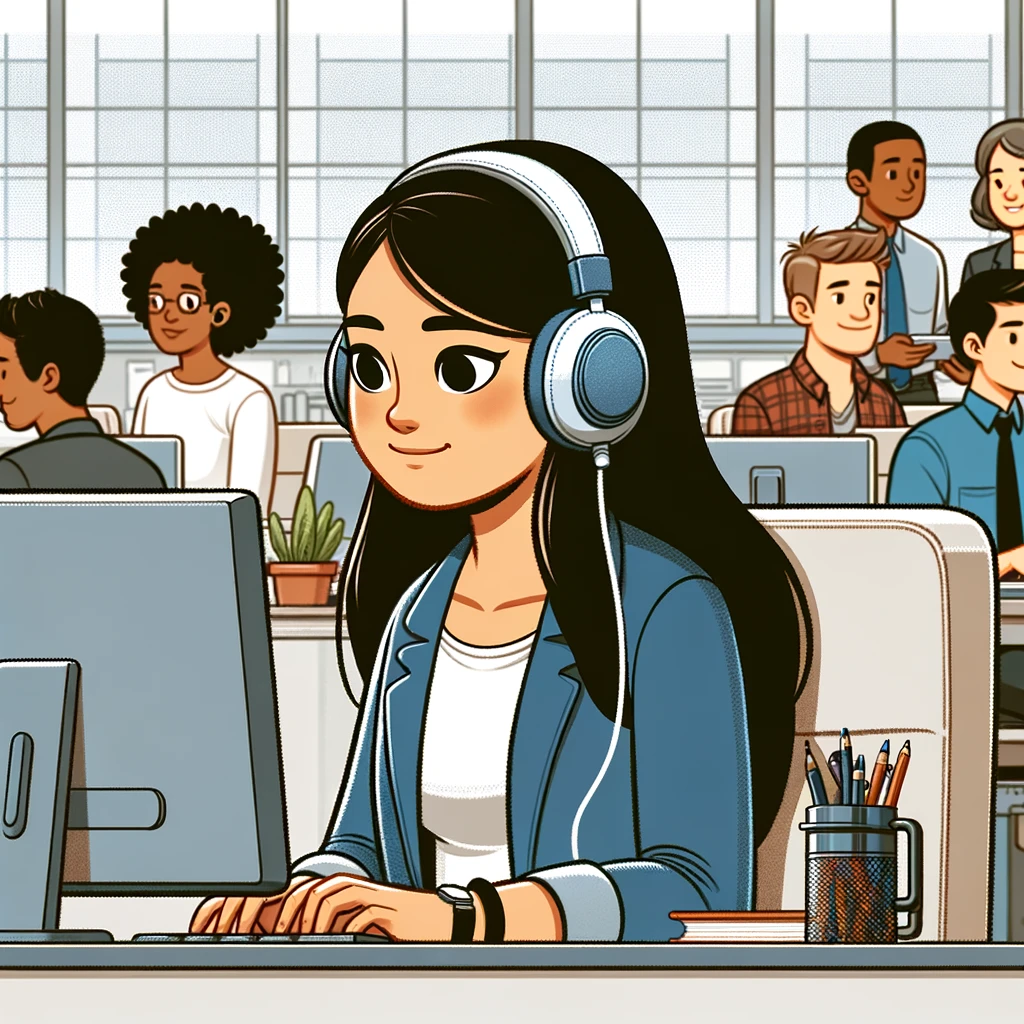Estimated reading time: 6 mins
If you’re reading this then you’ve probably asked yourself ‘Am I an Introvert?’ In a world that often celebrates the loud and the social, it’s easy to wonder where you fit if you find solace in the quieter moments. The term ‘introvert’ is frequently thrown around, but what does it actually mean? Are you an introvert, or are you simply influenced by the myriad stereotypes and misconceptions surrounding introversion?

Am I an Introvert? Understanding Introversion
Introversion is a complex and often misunderstood personality trait. It involves a preference for internal thoughts and feelings over external stimuli. This concept, first introduced by Swiss psychiatrist Carl Jung, describes introverts as individuals who find solace in their inner world. Unlike the common misconception, introversion isn’t synonymous with shyness or social anxiety. It’s more about where one draws their energy from – introverts recharge by spending time alone, reflecting on their thoughts and feelings.
This inward focus often leads to deep thinking and a rich inner life. While extroverts gain energy from interacting with others and external activities, introverts use up energy in social situations. This doesn’t mean they always avoid socializing; rather, they prefer engaging in meaningful, quiet conversations and often avoid overly stimulating environments. Understanding introversion is key to recognizing its value in a society that tends to favor extroverted traits, such as outgoingness and a constant desire for social interaction. Appreciating the nuances of introversion can lead to greater self-awareness and acceptance, and a recognition of the unique strengths this personality trait brings.
The Introvert’s Energy
The energy dynamics of an introvert can be likened to an internal battery that operates distinctly from that of an extrovert. While extroverts find their energy levels bolstered by social interactions and external engagement, introverts draw their energy from within, finding renewal in solitude and quiet reflection. This doesn’t imply that introverts are anti-social; rather, their social fuel is spent and replenished differently. They enjoy meaningful interactions but will feel drained by prolonged exposure to large, energetic crowds or overly stimulating environments.
This need for solitary recharge time is crucial; it’s when they process experiences, reflect on thoughts, and rejuvenate their mental and emotional reserves. Without this downtime, introverts can become overwhelmed, fatigued, or stressed. It’s a delicate balance that introverts navigate – embracing the social world in doses that don’t deplete them, while ensuring they have sufficient solitude to recharge and maintain their inner equilibrium. Understanding this energy dynamic is key to both personal well-being for introverts and for those around them to appreciate their need for periodic withdrawal.


Am I an Introvert? Signs You Might Be an Introvert
- Deep Thinker: You often find yourself lost in thought, exploring ideas and concepts in your mind.
- Solitude as Recharge: After social events, you need time alone to recharge your energy.
- Small, Close-Knit Friendships: You prefer a few close friends to a large group of acquaintances.
- Listening Over Speaking: You tend to listen more in conversations, speaking up when you feel it’s meaningful.
- Reflective: You often reflect on your thoughts and feelings, understanding yourself deeply.
- Overwhelm in Crowds: Large groups or noisy environments can feel overwhelming, making you feel drained.
- Independent: You enjoy working independently and often find that too much external input disrupts your workflow.
Introversion in a Social World
In a society that often favors extroversion, introverts can sometimes feel out of place. The emphasis on networking, teamwork, and social prowess can make introverts feel that their natural tendencies are inadequate. However, introversion brings its own set of strengths. Introverts are often great listeners, deep thinkers, and highly creative. They excel in one-on-one interactions and can form deep, meaningful relationships.
The Spectrum of Introversion
It’s crucial to understand that introversion-extroversion exists on a spectrum. Answering ‘Am I an Introvert?’ is not binary. Few people are purely introverted or extroverted. You might find that you lean towards introversion in certain aspects while exhibiting extroverted traits in others. For example, you might enjoy social gatherings but feel drained afterward and need time alone to recover.
Introversion in the Workplace
Introversion in the workplace presents a unique set of challenges and strengths. Introverts, often preferring quiet and minimally stimulating environments, might find typical office settings, like open-plan offices or group brainstorming sessions, somewhat overwhelming. Their tendency towards deep concentration can clash with the frequent interruptions and collaborative demands of modern workspaces. However, this same propensity for focus makes introverts excellent at tasks requiring detailed analysis, strategic planning, and independent problem-solving. They often excel in roles where they can work on projects in-depth, with minimal distractions.
Furthermore, introverts bring a thoughtful dimension to team dynamics. They tend to listen more than they speak, which means when they do contribute, it’s often with well-considered insights. Their preference for writing over speaking can be an asset in roles requiring precise communication, like technical writing or content creation.
The key for introverts to thrive in the workplace is finding the right balance and means of interaction. This might involve negotiating for a flexible work environment, where they can have quiet time for concentration, as well as structured, meaningful interactions with colleagues. It’s also important for employers to recognize and leverage the unique strengths introverts bring to the table, ensuring a diverse and balanced team dynamic.
Introversion in Relationships
Relationships can be another area where introverts might struggle, especially if their partner is more extroverted. Communication is key here. Expressing your need for alone time, and understanding your partner’s need for social interaction, can help in navigating this dynamic. Remember, needing time alone is not a rejection of the other person but a way to care for your mental health.


Coping Strategies for Introverts
- Set Boundaries: It’s okay to say no to social events when you need time for yourself.
- Find Your Comfort Zone: Engage in social activities that you enjoy and don’t feel pressured to conform to what others enjoy.
- Quality Over Quantity: Focus on having a few close, meaningful relationships.
- Embrace Your Solitude: Use your alone time for hobbies, reading, or simply to relax and recharge.
- Communicate Your Needs: Whether at work or in personal relationships, communicate your need for quiet time.
- Self-Care: Recognize the signs of being overwhelmed and have a plan to recharge.
Am I an Introvert? Embracing Your Introversion
Being an introvert isn’t a flaw; it’s simply a part of who you are. Embracing this can lead to a deeper understanding of yourself and how you interact with the world. It allows you to leverage your strengths and find ways to manage challenges.
Introversion and Creativity
One of the greatest strengths of introverts is their creativity. The introspective nature of introverts often makes them great at creative problem-solving. They’re able to dive deep into their inner world, exploring ideas and concepts in a way that can lead to innovative solutions and artistic expressions.
Introversion in Leadership
Contrary to popular belief, introverts can be effective leaders. They often lead with empathy, listen well, and think deeply about decisions. Introverted leaders can create a work environment that is reflective and thoughtful, where everyone feels heard.
Can you now answer the question ‘Am I an Introvert?’
So, am I an introvert? Only you can answer that. But if you are asking that, you probably are! Remember, being an introvert is more than just being shy or reserved. It’s about where you draw your energy from and how you interact with the world. Embrace your introversion, understand your needs, and communicate them to others. In doing so, you’ll not only thrive in your personal and professional life, but you’ll also offer a unique perspective in a world that can’t be all extrovert, all the time.
